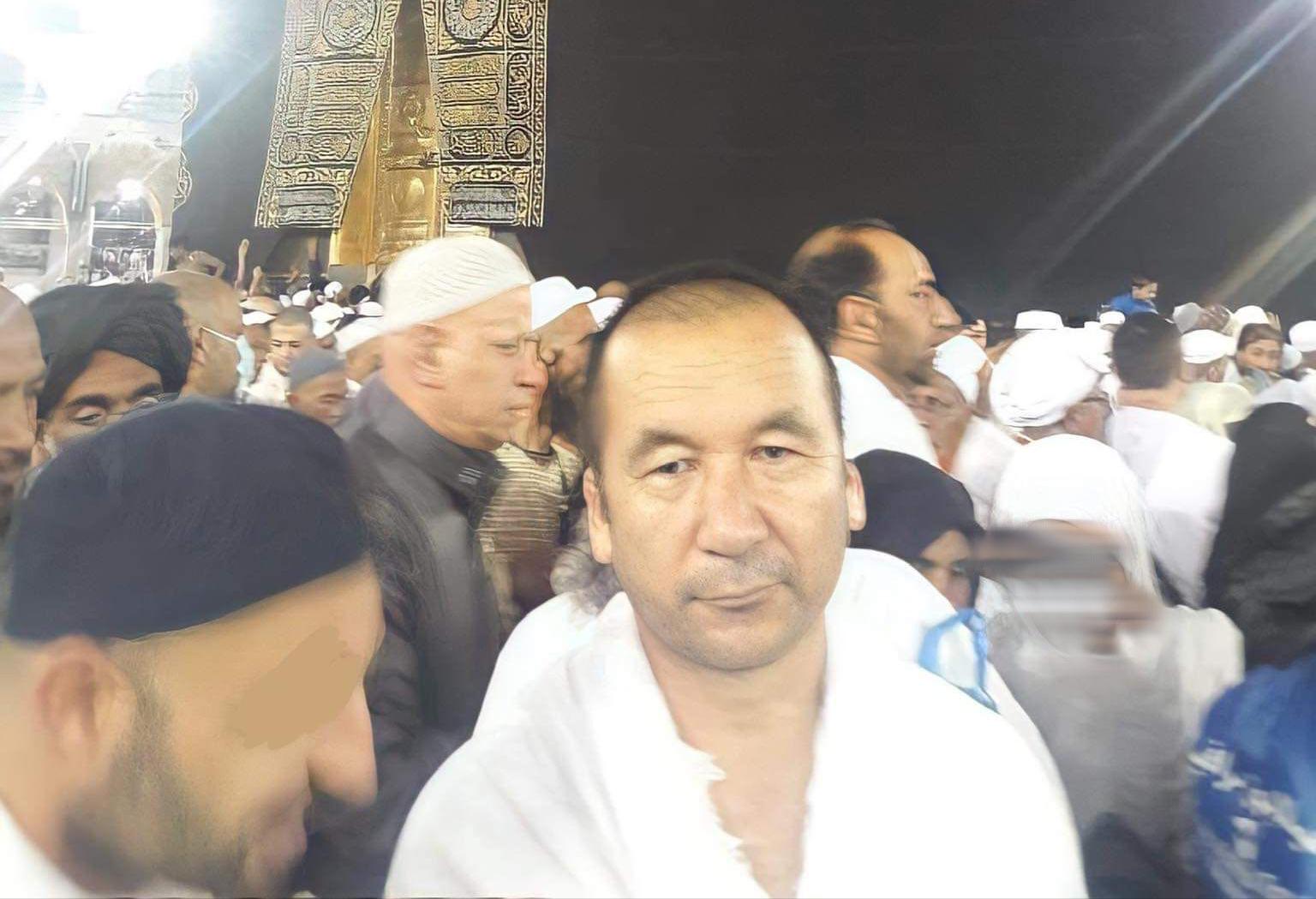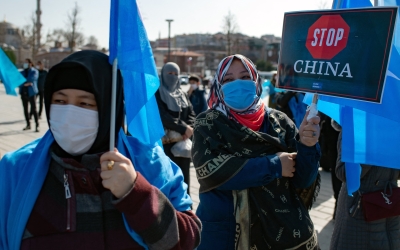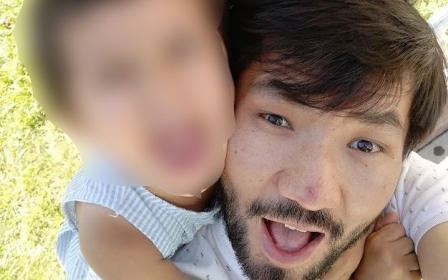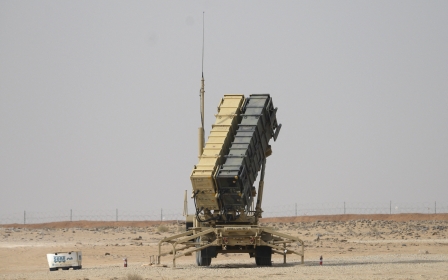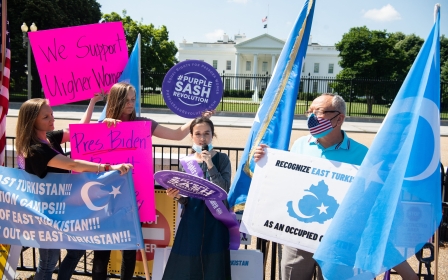Uighur scholar could be deported from Saudi Arabia 'within days', says family
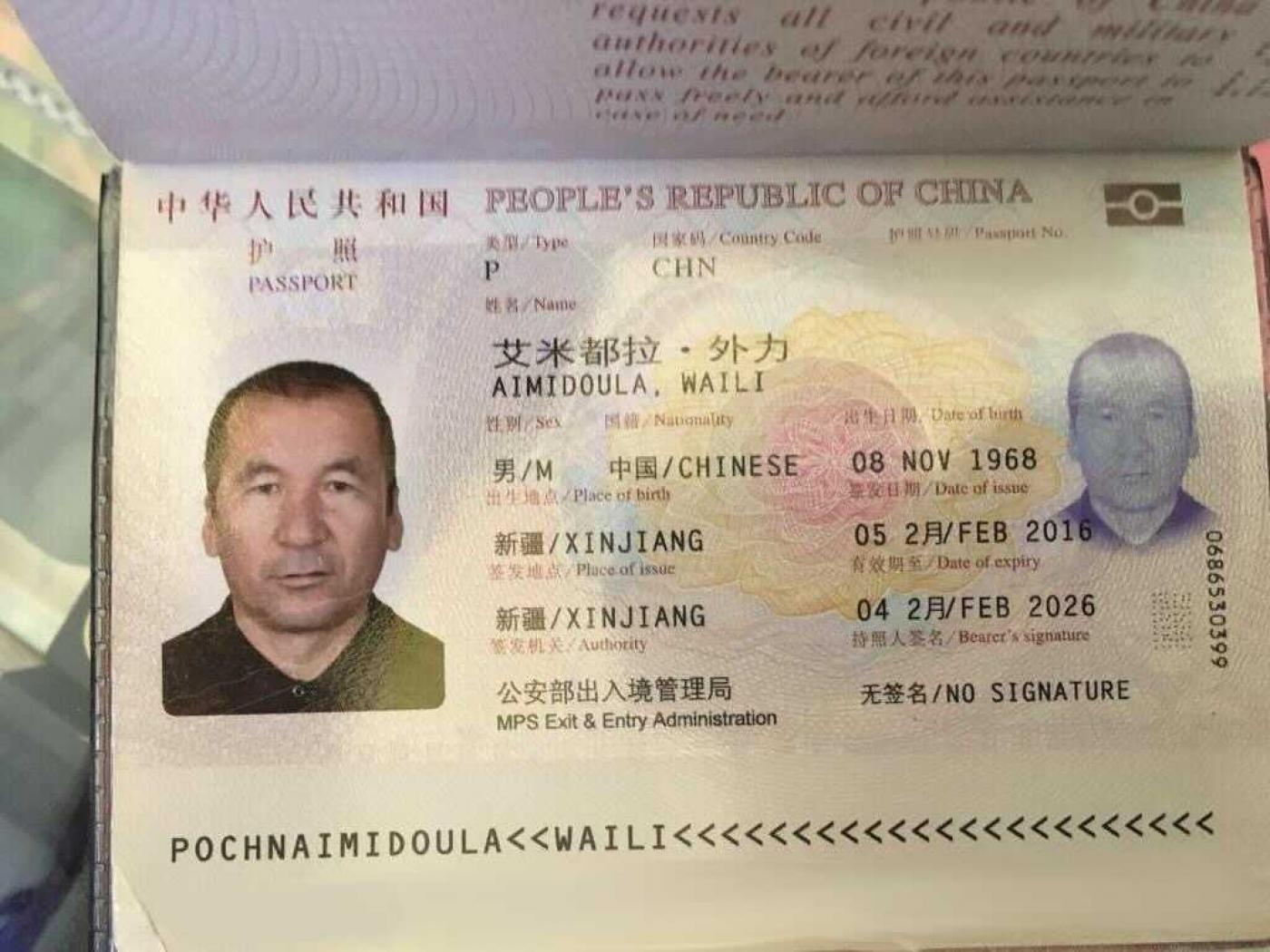
A Uighur religious scholar detained without charge in Saudi Arabia may be deported "within days" to China, where he could face imprisonment and torture, his daughters have told Middle East Eye.
'We have not heard our father's voice for over a year, and it pains us knowing that he could be sent to China and be separated from him forever'
- Nurin Hemdullah, detained Uighur's daughter
Aimadoula Waili, also known as Hemdullah Abduweli, is one of two Uighurs at risk of imminent deportation to China from the kingdom.
The scholar travelled to Saudi Arabia in 2020 on a yearlong visa from Turkey, where he is an official resident, to perform a pilgrimage to Mecca. But Waili went into hiding after the Chinese consulate in Riyadh allegedly requested his deportation.
The Chinese government is accused of detaining more than one million Uighurs and other Muslim minorities in the eastern Xinjiang region, and subjecting the community to abuses that some have labelled a "genocide". China denies the allegations of abuse.
Moving from one Uighur's home to another, Waili relied on a network of Uighurs inside Saudi Arabia to keep him safe, fearing that going to the airport would lead to his automatic deportation.
New MEE newsletter: Jerusalem Dispatch
Sign up to get the latest insights and analysis on Israel-Palestine, alongside Turkey Unpacked and other MEE newsletters
But he was eventually caught by authorities in November 2020 and taken to Dhahban Central Maximum Security Prison in Jeddah, where he has been held without charge.
Speaking to MEE, Waili's daughter Nurin Hemdullah and her sister said a Saudi judicial official had seen their father last week and told him to be "mentally prepared" to be deported "within days" to China.
The women said they had spoken to a Uighur in Saudi Arabia monitoring the case, who said the judicial official confirmed the decision despite both men being accused of no crime in China or the kingdom.
"We have not heard our father's voice for over a year, and it pains us knowing that he could be sent to China and be separated from him forever," said Nurin.
"Since hearing about his possible deportation, we have cried non-stop. And whenever we think about this separation, the pain is just unbearable, and our heart breaks every time."
Who are the Uighurs and why is China targeting them?
+ Show - HideAccording to multiple reports, more than one million Uighurs, a Muslim-majority Turkic people, are currently being held in internment camps across Xinjiang in western China (or occupied East Turkestan as many Uighurs refer to the region).
Human Rights Watch said in September 2018 that up to 13 million Muslims in Xinjiang have been subjected to “forced political indoctrination, collective punishment, restrictions on movement and communications, heightened religious restrictions, and mass surveillance in violation of international human rights law”.
The Uighurs have have been particularly targeted since Communist party leader Chen Quanguo became Xinjiang’s party secretary in 2016. Under his leadership, a massive surveillance infrastructure was unrolled across the region designed to monitor and control the Muslim community.
Uighurs and ethnic Kazakhs have been routinely rounded up for practising their Islamic faith, including praying, observing Halal, or wearing clothes synonymous with being Muslim.
The Chinese government has even labelled Islam an “ideological illness” and has destroyed some mosques in the region. In the camps, detainees are forced to learn Chinese Mandarin, praise the ruling Chinese Communist Party and face recurrent psychological and physical abuse.
Uighur activists say that entire families have disappeared into the camps, or have been executed.
China has repeatedly denied allegations that it is persecuting the minority group, instead describing the camps as “vocational training centres” designed to counter religious extremism.
It also calls concerns raised by Uighur community members, human rights groups and others “unjustified” and an “interference in China’s internal affairs”.
It remains unclear when Saudi Arabia could deport the two Uighurs. Maya Wang, a senior Human Rights Watch researcher on China, also spoke to their families and called on Saudi Arabia to halt the deportation.
"Saudi Arabia should not forcibly return these two Uighurs to China, where they are likely to disappear into a black hole," Wang told MEE.
"It's bad enough that Saudi Arabia has been unwilling to criticise the Chinese government's assault on Islam. But it's a shocking rejection of international law to forcibly return them."
Wang added that the families had told her the judicial official had also asked Waili and the other detained Uighur if they knew the names of other Uighurs in Saudi Arabia.
Targeted campaign on Uighurs
Waili's possible deportation comes months after a Moroccan court approved the extradition of a Uighur activist after Beijing lodged a warrant for his arrest through Interpol.
Yidiresi Aishan, a 34-year-old father of three with residency status in Turkey, was detained by Moroccan police in Rabat after fleeing to the North African country.
It remains unclear why Morocco approved Aishan's extradition after Interpol cancelled the "red notice" arrest warrant issued against him.
Interpol cancelled the red notice in August after its general secretariat received new information about Aishan.
In October 2020, BBC News reported that Saudi Arabia and other Muslim-majority countries, including Egypt and the United Arab Emirates, had collaborated with Beijing to deport Uighurs back to China.
In 2019, Chinese documents leaked to the New York Times showed how China managed its re-education camps and mass surveillance of the Uighur population in the Xingjiang province.
Excerpts from the documents showed how China identified nearly 6,000 Uighurs who were abroad or had papers to travel to be monitored by the Chinese state.
It ordered officials to track down individuals "for whom suspected terrorism cannot be ruled out" and "individuals the moment they cross the border and placed into concentrated education and training".
Middle East Eye delivers independent and unrivalled coverage and analysis of the Middle East, North Africa and beyond. To learn more about republishing this content and the associated fees, please fill out this form. More about MEE can be found here.


